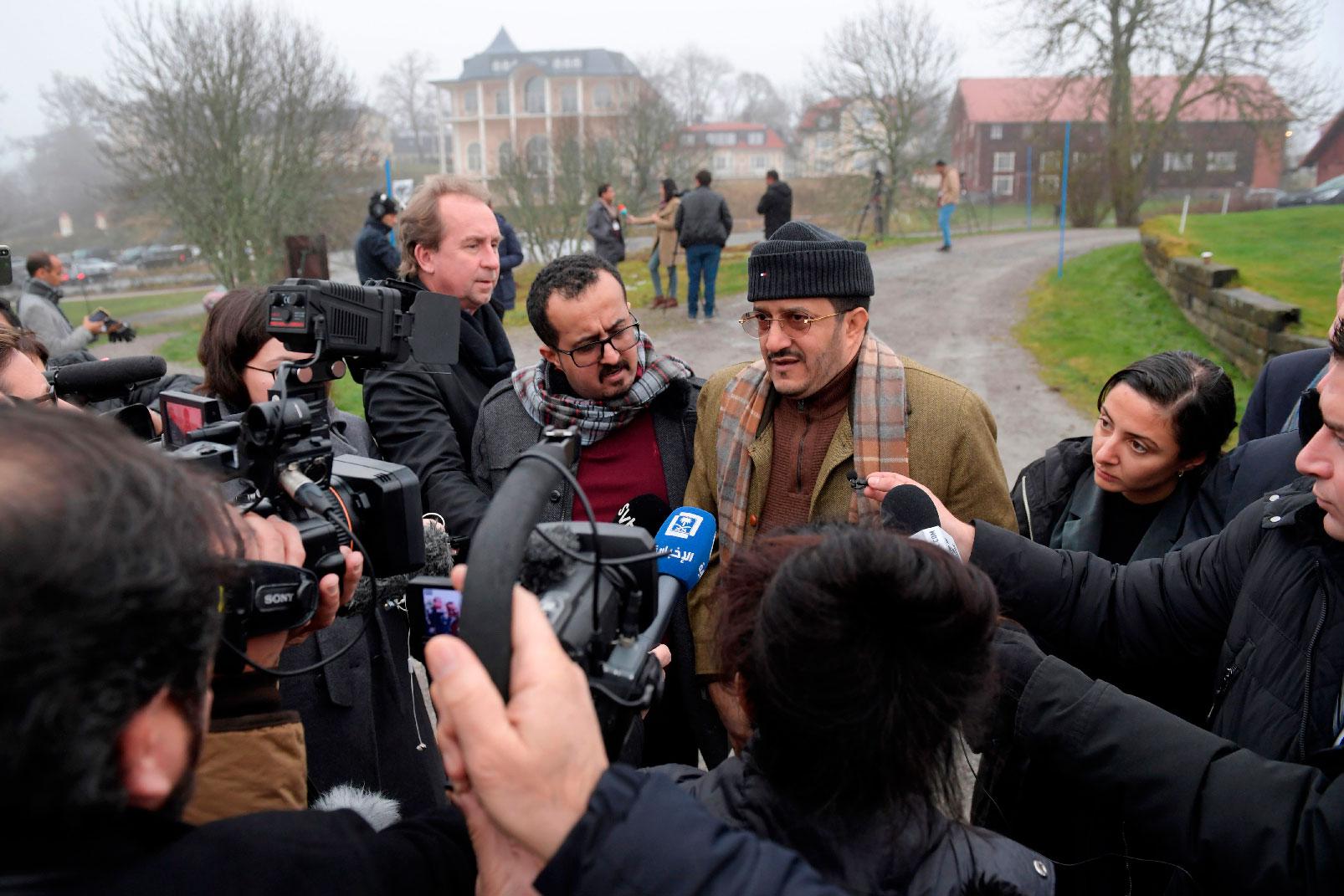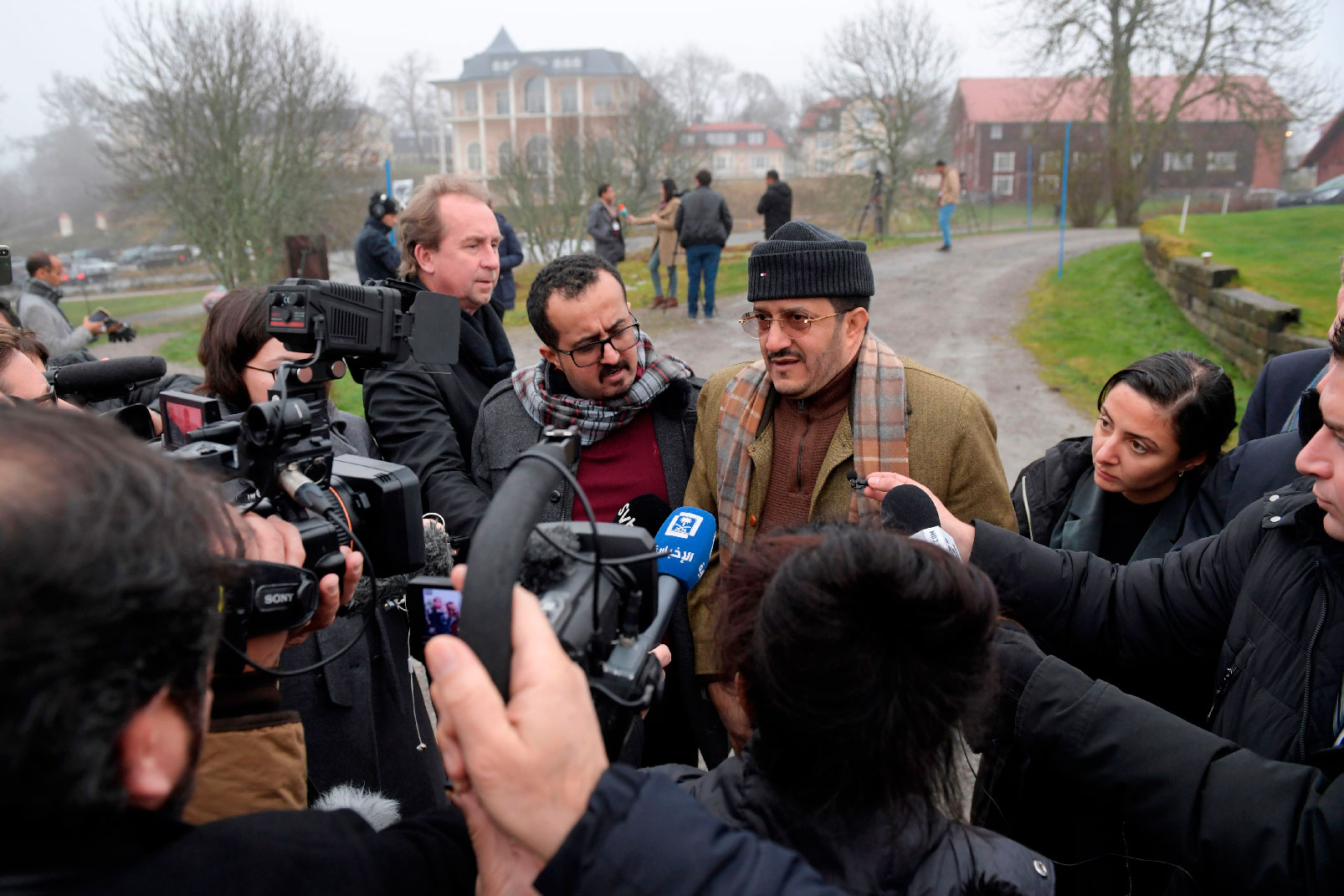Yemen goverment says rebels 'not serious' at UN talks
RIMBO - A Yemeni government official said Saturday that Huthi rebels were "not serious" on finding common ground to end the devastating war, three days into UN-brokered talks in Sweden.
Nearly four years into a war that has pushed 14 million Yemenis to the brink of starvation, the Saudi-backed government of Abedrabbo Mansour Hadi and Huthi rebels, linked to Riyadh's archrival Iran, are in the rural town of Rimbo for what UN officials expect will be a week of negotiations.
"Expectations stem from experience, and from experience I would say no, they are not serious," said Rana Ghanem, a member of the government delegation to the talks.
"But our hope ... is that this will help alleviate the tension, and alleviate the suffering of the Yemeni people," said Ghanem, the only woman in either delegation.
The last round of talks in 2016 broke down in Kuwait after more than three months of negotiations.
A plan to host the warring parties in Geneva collapsed in September after the rebels refused to leave the capital Sanaa, citing safety concerns.
Government representatives, rebel spokesmen and UN Yemen envoy Martin Griffiths have all said the talks are not aimed at finding a political solution to the conflict.
Both Yemeni parties have threatened to leave the talks if certain demands are not met.
Ghanem confirmed the two parties had not yet met face-to-face, with Griffiths and his team shuttling between the delegations.
'Informal' chats
The feuding sides had, however, been chatting "informally" in the halls, she said.
Among the issues under discussion are the country's failed economy, potential humanitarian corridors, a prisoner swap, the reopening of the defunct Sanaa international airport, and Hodeidah, the rebel-held city at the heart of an ongoing government offensive.
The government has held firm to its demand that the Huthis evacuate the western governorate of Hodeidah, home to a Red Sea port that is the entry point for 90 percent of food imports to impoverished Yemen, and hand the area over to security forces.
The rebels, however, refused that demand Friday and also refused a government proposal to turn Sanaa internatonal airport into a domestic airport.
The Iran-aligned Huthis' main negotiator said on the sidelines of talks on Saturday that Yemen's main port city should be declared a "neutral zone" and the United Nations could play a role in Sanaa airport.
The Huthis control major population centres in Yemen, including the capital Sanaa and the Red Sea port of Hodeidah, a lifeline for millions of people that is now a focus of the war after the coalition launched a campaign to capture it this year.
Special envoy Griffiths is trying to avert a full-scale assault on Hodeidah, the entry point for most of Yemen's commercial goods and vital aid.
"It (Hodeidah) should be a neutral zone apart from the conflict, and the military brigades that came from outside Hodeidah province should leave," Huthi negotiator, Mohammed Abdusalam, said in Rimbo on the sidelines of peace talks with the Saudi-backed government.
Asked if Huthi forces would then withdraw from Hodeidah, Abdusalam said: "There will be no need for military presence there if battles stop ... Hodeidah is an economic hub and it should stay that way for the sake of all Yemenis."
"We have proposed to the UN to oversee the port and supervise its logistics... inspections, revenues and all the technical issues," he said.
He declined to say who will control the city if both forces leave.
Far apart
Griffiths secured a prisoner swap deal on the first day of the talks on Thursday. But a UN source said the two sides remained far apart on Sanaa airport and Hodeidah.
The Huthi negotiator said dedicated committees are still discussing the number of prisoners involved. "The problem is with trust, (both sides) do not want to give precise numbers because each is worried that the other will hide something."
Abdusalam said his group was open to the possibility of a UN role at Sanaa airport to secure agreement to reopen the facility, which has been bombed several times.
The airport is in Huthi territory but access is restricted by the Saudi-led coalition, which controls the air space.
Abdusalam said any political solution to the war should start with outlining a transitional period with an exact timeframe, and should include all the country's political parties.
Many Yemenis factions are involved in the war that pits the Huthis against a Saudi-led coalition that intervened in Yemen in 2015 to restore the government of Abd-Rabbu Mansour Hadi.
Sanaa airport has been largely shut for three years, during which the Saudi-led coalition took control of Yemen's sea and airspace.
The coalition accuses the rebels of smuggling arms from Iran through Hodeidah and Sanaa airport. Tehran denies the charge.
The Huthis, northern tribesmen who hail from the minority Zaidi Shiite community, overran the capital and a string of ports in a territorial takeover in 2014.


